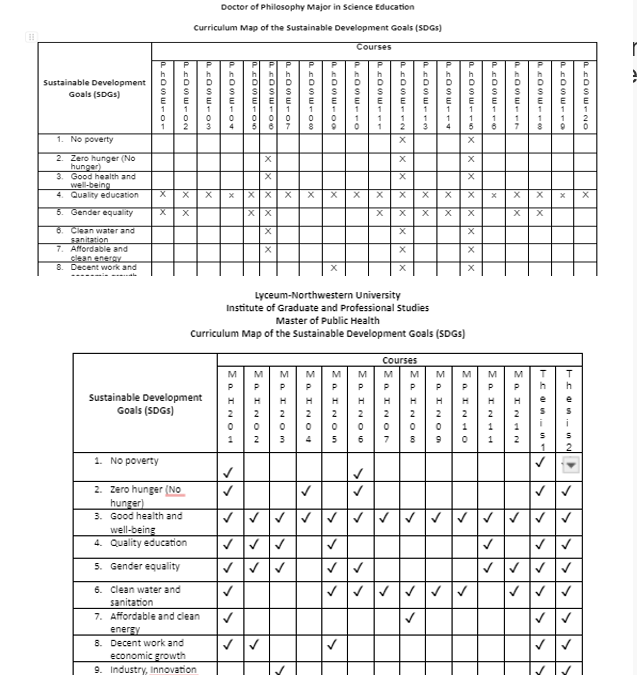SDG Mapping for Each Subject
As a result of the write shop, SDG mapping has been incorporated into each subject offered by the university. This ensures that all students, regardless of their field of study, are exposed to topics related to sustainable development. Each subject in the curriculum now clearly identifies which of the 17 SDGs it addresses. For example, a course in Environmental Science might emphasize SDG 13 (Climate Action), while a Business Management course might integrate SDG 8 (Decent Work and Economic Growth) or SDG 9 (Industry, Innovation, and Infrastructure). This deliberate alignment not only enriches the learning experience but also encourages students to become proactive contributors to sustainable development in their future careers.
Inclusion of Institutional Sustainability Courses
In addition to SDG mapping within existing subjects, the curriculum has also been revised to include institutional subjects that specifically focus on sustainability. These new courses, added to all degree programs, are designed to provide students with a deeper understanding of sustainability principles and practices. They aim to promote awareness and action towards the achievement of the SDGs, making sustainability a core component of every student’s educational journey, regardless of their major.
Syllabi Requirement to Specify Addressed SDGs
To ensure consistency and accountability in this university-wide initiative, all faculty members are now required to indicate in their syllabi which SDGs their courses address. This not only helps faculty align their teaching with the university’s sustainability goals but also informs students of the specific global challenges their courses will tackle. By clearly specifying the SDGs, the university fosters a culture of sustainability and global citizenship among students, preparing them to contribute meaningfully to the global effort in achieving these goals.
This curriculum revision, with its focus on SDG mapping and the inclusion of sustainability-focused subjects, reflects the university’s commitment to producing graduates who are not only academically competent but also conscious of their role in creating a sustainable future.

